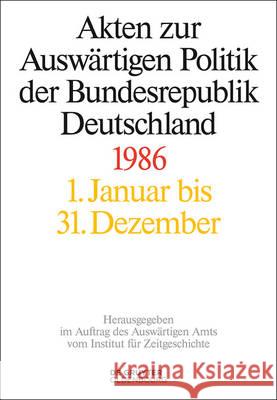1986, 2 Teile » książka
1986, 2 Teile
ISBN-13: 9783110486834 / Niemiecki / Twarda / 2017 / 2127 str.
In 1986, East-West relations were imbued with a new dynamic. Mikhail Gorbachev challenged NATO with a public call for abolishing nuclear weapons. The Reykjavik Summit failed to produce an agreement, yet it raised the prospect of a world without nuclear arms. The continuation of the Conference on Security and Co-operation in Europe (CSCE) further encouraged hopes for a new peaceful order in Europe. Relations between West Germany and the USSR eased following Foreign Minister Genscher's visit to Moscow, but German Chancellor Helmut Kohl promptly torpedoed the detente by comparing Gorbachev to Goebbels in an interview for Newsweek. The challenges posed by terrorism grew with the bombing of the Berlin discotheque "La Belle" and the murder of Gerold von Braunmuhl, a high ranking West German diplomat. The Chernobyl disaster vividly illustrated the dangers of nuclear power. The difficult legacy of National Socialism remained a recurrent theme, as demonstrated by the Historikerstreit ("historian's quarrel") over how Nazi Germany and the Holocaust should be remembered.











